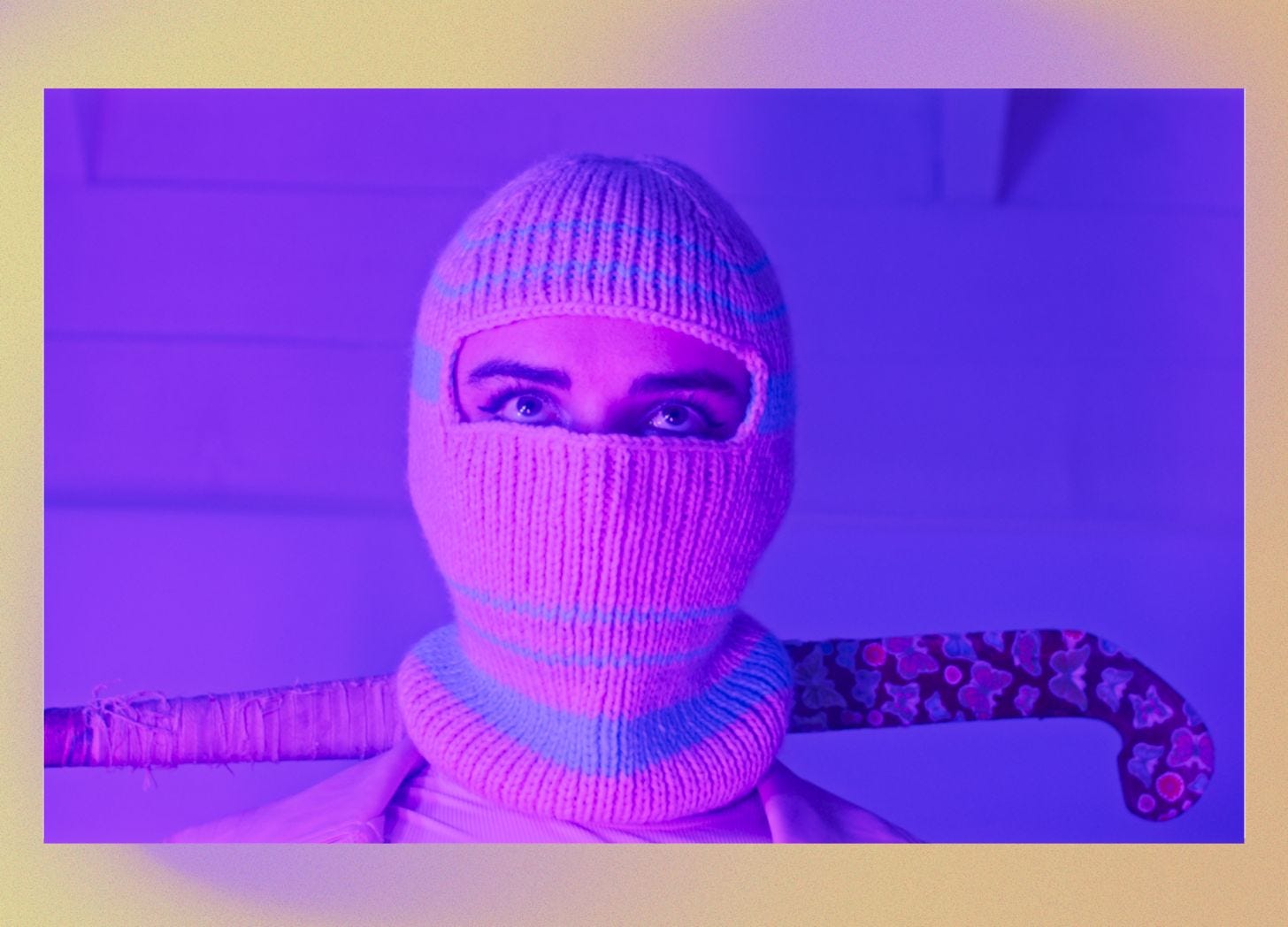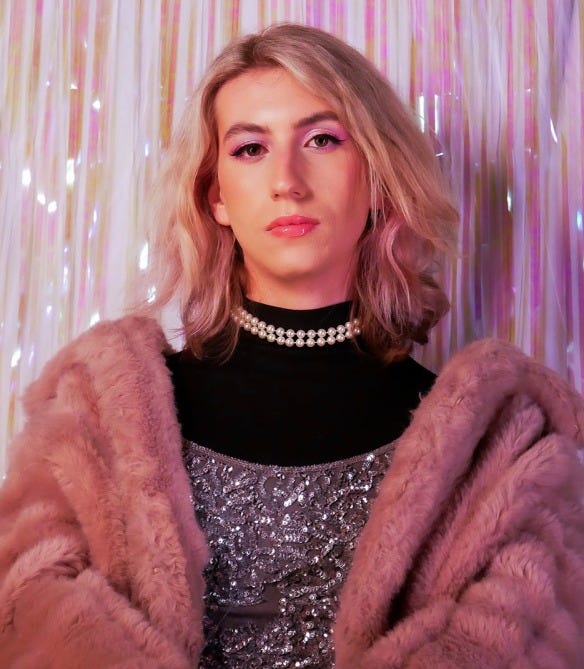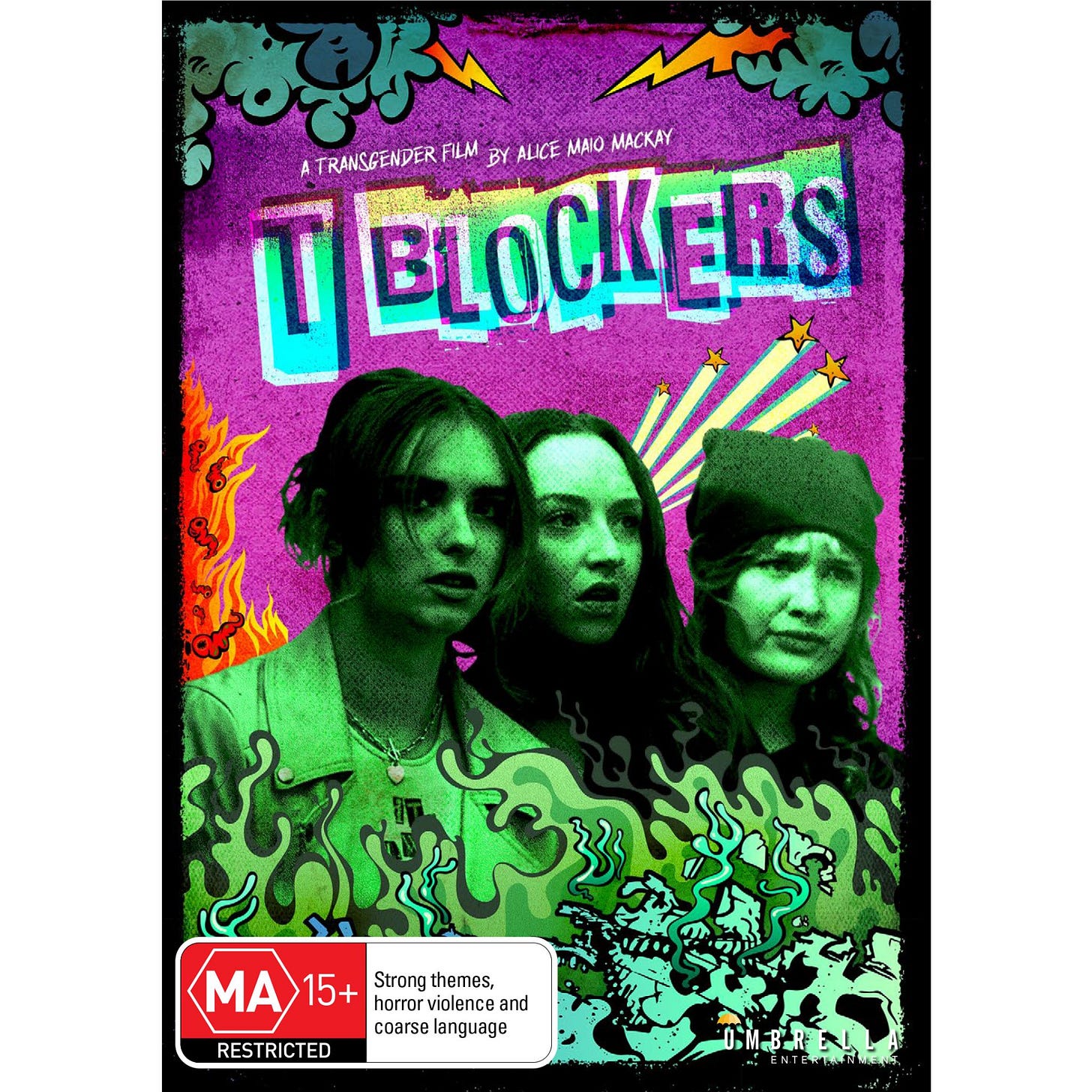"Oh, parasitic men": talking horror, chasers and Jordan Peterson with filmmaker Alice Maio Mackay
T Blockers is a new and extremely fun horror film from trans film maker Alice Maio Mackay, that centres a trans woman as the protagonist and heroine.
There’s a lot of stuff to talk about in terms of allegories and themes and metaphors in the new extremely queer horror film, T Blockers. In this film, the radicalisation of men in our society is giving horrific and literal embodiment in the form of evil alien parasites born in toxic neon goo.
It’s a very fun way of exploring the issue, while also being pretty apt.
T Blockers is a new film from trans film maker Alice Maio Mackay, that centres a trans woman as the protagonist and heroine. It deeply prioritises the trans experience, as well as being a kind of love letter to horror in general. I also have to make sure that people understand it’s an incredibly fun horror romp, full of campy goo and vigilante trans justice. But also many themes.
I was lucky enough to chat to Alice Maio Mackay about her films, and about making films with trans characters.
—
PATRICK: what prompted you to, to make T Blockers - it feels so incredibly topical right now, but it must have been a long time in the works, right?
ALICE: I'd made my first two features (So Vam and Satranic Panic) which were queer and trans in a way, but I was at a point in my life where I was comfortable enough in my transition and wanted to make a work that centred a trans woman, and explored that kind of world.
It's kind of weird looking back on it, because I was like 16 or 17 when I made it, and it's been almost two years now. But like stuff like the JK Rowling line, that was two years ago and it’s crazy because since then she's only gotten worse. It's still topical and even stuff like the laws around children transitioning and stuff that's mentioned in the film - it was bad then in 2022. But now in 2024, watching the film now, I'm like, oh these things have actually strangely gotten worse. And these people have gotten worse, which is sad, but it's good that T Blockers is still relevant, I guess.
So Vam is about a queer kid who is a drag queen, and a vampire that kind of like, saved him and that he looks up to is a trans woman. So, there's trans characters still in the work and like in the world, but it was more aspirational figures for the lead characters to look up to.
Whereas T Blockers I was like, no, it's going to be about this trans woman. She's a real three dimensional person, rather than just like, a cool badass hero figure, which is a great and cool representation. But I was just at a point where I was like, I want to write something a little different.
PATRICK: OK, this is a question that I've wondered quite a bit because I've seen a few different answers But what why? Why is horror so common for queer and especially trans narratives? I'm genuinely curious why it’s such a common trope.
ALICE: Um, I don't know - for me personally I grew up loving horror things. And I think that a lot of early horror is very campy, and I love early 2000s and 90s horror in particular, and even Universal Monsters and Bride of Frankenstein and all that. I think it just like intersects really well and a lot of queer people can, if not relate, just enjoy horror.
PATRICK: Radicalisation of men could be seen as the villain of the film - what made you decide to focus on this in a horror film and turn it into the kind of the point of the film?
ALICE: Um, I don't know, I think it was just on my mind. The first few scenes we wrote was the bedroom scene and the experience with the chaser, as I kind of knew that I wanted chasers to be incorporated in the plot somehow. And I guess it just kind of made sense in my mind to be like, “oh parasitic men, Jordan Peterson”.
But I knew I didn't want it to be just a certain type of man either, because I feel like that's fairly stereotypical. Like I wanted Adam (the chaser), the guy she dates to begin with, to be a well rounded, respectable guy on the outside. Because I think a lot of times you see stereotypically gross men being like the villain, but that's not the case, especially from my perspective of what I saw growing up, you see a lot of liberal leaning people be quietly transphobic or harbour these thoughts, whether they're public about that or not.
PATRICK: For anyone who aren't across what a chaser is, can you give, like, a brief summary for them?
ALICE: Men who are attracted to a trans woman because of their trans-ness and see them as a fetish.
I don't really set out to write films that have messages or like be political inherently, I think just my art and what I want to talk about is seen as political just by nature and my experience. So it wasn’t like “I want this specific message to come across”. And I feel like people will take away different things from it.
PATRICK: Okay. So you mentioned that there was some, like 90s, 2000s inspirations for this, walk me through not just your inspiration from horror for this film, but just your love of horror in general?
ALICE: I grew up on Buffy the Vampire Slayer, I was obsessed with both the TV show and movie. You know, it's got witty one-liners, it's got a deep emotions, friendships girly stuff, gay stuff, fashion, horror: everything someone could want. So that was like a very big inspiration for this film.
I also love Kevin Smith's work, a lot of the film is inspired by stuff like Mallrats and Clerks. That stoner, coming of age, hangout film, where people are just like, talking and vibing. When they set out to make T Blockers, I wanted to make it a trans hangout film, and then have the horror elements secondary to the plot and the character development and it's like, how does the horror affect the friendships and the characters.
—
T-Blockers is rated MA15+, and it’s out now on VOD and DVD.







